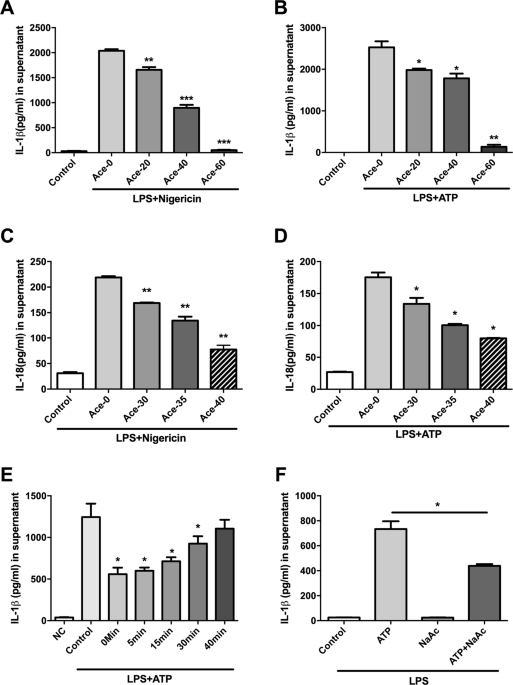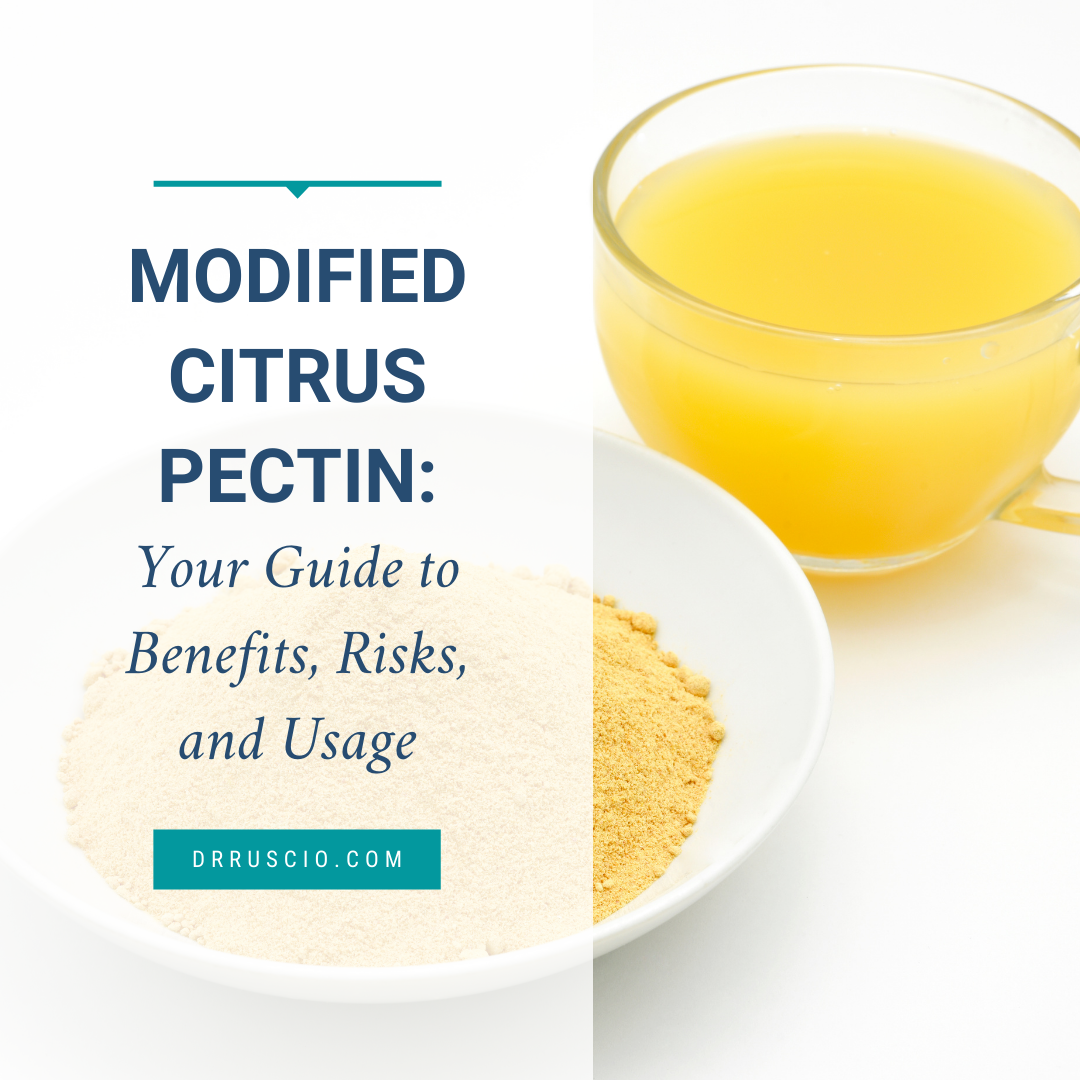I used that brand, but stopped as soon as I saw that they changed it. Since then, I have been studying fibers again, and I have replaced cellulose with carrots.Do you use a brand that is "pure" cellulose? Link? Thx!
Navigation
Install the app
How to install the app on iOS
Follow along with the video below to see how to install our site as a web app on your home screen.
Note: This feature may not be available in some browsers.
More options
-
By using this site you agree to the terms, rules, and privacy policy.
-
Charlie's Restoration Giveaway #2 (Entire Home EMF Mitigation & Protection Along With Personal Protection) - Click Here To Enter
-
Dear Carnivore Dieters, A Muscle Meat Only Diet is Extremely Healing Because it is a Low "vitamin A" Diet. This is Why it Works so Well...
Rest the rest of this post by clicking here
-
The Forum is transitioning to a subscription-based membership model - Click Here To Read
Click Here if you want to upgrade your account
If you were able to post but cannot do so now, send an email to admin at raypeatforum dot com and include your username and we will fix that right up for you.
You are using an out of date browser. It may not display this or other websites correctly.
You should upgrade or use an alternative browser.
You should upgrade or use an alternative browser.
Citrus peel-derived pectin prevents IBD by shifting fermentation from butyrate to acetate, inulin and FOS do the opposite
- Thread starter Mufasa
- Start date
I looked and can't find any "pure" cellulose (non-microcrystalline) on Amazon...I used that brand, but stopped as soon as I saw that they changed it. Since then, I have been studying fibers again, and I have replaced cellulose with carrots.
Me neither...I looked and can't find any "pure" cellulose (non-microcrystalline) on Amazon...
Btw:
P10 is a pectin that also exist in carrots, and the one I mentioned before that is patented.
It causes the lowest butyrate production of all pecins tested here:
Jeeze... I had just started taking butyrate, after reading about all of its "benefits"... seems Dinkov thinks it is poison. Dang, so much info out there, contradicting each other... hard to know which end is up. I read that butter is very high in butyrate... but Peaters all love butter... no?Me neither...
Btw:
View attachment 60427
View attachment 60426
P10 is a pectin that also exist in carrots, and the one I mentioned before that is patented.
It causes the lowest butyrate production of all pecins tested here:
i was already on the gylcine, taurine, acv, red light/MB train before finding his vids, and saw he also liked aspirin and niacin.... so i was like wow this guy has my lst 5 years all summed upI like his content, I find it to be thought provoking. He is not going to displace Dr. Peat as my primary source for understanding how to stay healthy.
Butter is indeed 3% butyrate. Ray Peat thinks it is pro-inflammatory for the gut, but also has anti-cancer and pro-metabolic effects in other places in the body. Here are some quotes from haidut:Jeeze... I had just started taking butyrate, after reading about all of its "benefits"... seems Dinkov thinks it is poison. Dang, so much info out there, contradicting each other... hard to know which end is up. I read that butter is very high in butyrate... but Peaters all love butter... no?
However, the more surprising ones are tocopherol, butyrate and cholate. I guess the good news is that the effects of these metabolites were weak and transient. However, I do remember Peat saying butyrate has some strong pro-inflammatory effects and even though has much promise as a cancer or dementia treatment it has to be used sparingly.
However, butyrate is actually pro-serotonergic as the study in my original post shows so even though it inhibits cancer it is actually irritating to the stomach as are the SCFA acetate and proprionate. Peat says the same thing in one of his recent interviews. He said butyrate is probably effective for cancer and many people are selling it for that purpose, but it is pro-inflammatory for the gut. Btw, it is fairly common knowledge that giving butyrate to dogs and cats with cancer effectively allows them to live disease free and die from other cause (aging). Just Google around for butyrate and cancer in pets. Why this is not hailed around the world as a breakthrough in cancer therapy is beyound me..
So eating butyrate probably is probably also inflammatory for the gut, but other substances in butter might compensate, and I guess having bacteria in your gut producing butyrate 24/7 might have different effects, than eating butter a couple of times per day.
It could also be that butyrate has different effects in the small intestine where it gets absorbed, than the butyrate producing bacteria in the colon. The reason it is inflammatory is probably mainly because this is a mechanism how the guts signals "bad bacteria".
Haidut says that acetate and proprionate also irrate the gut, but I think he might be mistaken about that one. Here is study showing acetate causes NLRP3 degradation:

Acetate attenuates inflammasome activation through GPR43-mediated Ca2+-dependent NLRP3 ubiquitination - Experimental & Molecular Medicine
Acetate, a short-chain fatty acid, reduces activation of the NLRP3 inflammasome, a multiprotein complex that mediates inflammation. Acetate is produced by gut bacteria and can stimulate the synthesis of fat. High levels of acetate have been associated with diabetes, heart failure and tumor...
Another study s showing it lowered NLRP3 and the detrimental inflammatory interleukines produced by it.
"After acetate treatment, the expression levels of TNF-α, IL-1β, IL-18, NLRP3, and caspase-1 were significantly reduced, while the expression of GPR43 was increased."
More studies that acetate is a true anti-serotonin!
So basically your gut can become a 24/7 anti-serotonin container, if you breed the right bacteria:

 pubmed.ncbi.nlm.nih.gov
"Serotonin [5-hydroxytryptamine (5-HT)], an important neurotransmitter and a paracrine messenger in the gastrointestinal tract, regulates intestinal secretion by its action primarily on 5-HT3 and 5-HT4 receptors. Recent studies highlight the role of gut microbiota in 5-HT biosynthesis. In this study, we determine whether human-derived gut microbiota affects host secretory response to 5-HT and 5-HT receptor expression. We used proximal colonic mucosa-submucosa preparation from age-matched Swiss Webster germ-free (GF) and humanized (HM; ex-GF colonized with human gut microbiota) mice. 5-HT evoked a significantly greater increase in short-circuit current (ΔIsc) in GF compared with HM mice. Additionally, 5-HT3 receptor mRNA and protein expression was significantly higher in GF compared with HM mice. Ondansetron, a 5-HT3 receptor antagonist, inhibited 5-HT-evoked ΔIsc in GF mice but not in HM mice. Furthermore, a 5-HT3 receptor-selective agonist, 2-methyl-5-hydroxytryptamine hydrochloride, evoked a significantly higher ΔIsc in GF compared with HM mice. Immunohistochemistry in 5-HT3A-green fluorescent protein mice localized 5-HT3 receptor expression to enterochromaffin cells in addition to nerve fibers. The significant difference in 5-HT-evoked ΔIsc between GF and HM mice persisted in the presence of tetrodotoxin (TTX) but was lost after ondansetron application in the presence of TTX. Application of acetate (10 mM) significantly lowered 5-HT3 receptor mRNA in GF mouse colonoids. We conclude that host secretory response to 5-HT may be modulated by gut microbiota regulation of 5-HT3 receptor expression via acetate production. Epithelial 5-HT3 receptor may function as a mediator of gut microbiota-driven change in intestinal secretion.NEW & NOTEWORTHY We found that gut microbiota alters serotonin (5-HT)-evoked intestinal secretion in a 5-HT3 receptor-dependent mechanism and gut microbiota metabolite acetate alters 5-HT3 receptor expression in colonoids."
pubmed.ncbi.nlm.nih.gov
"Serotonin [5-hydroxytryptamine (5-HT)], an important neurotransmitter and a paracrine messenger in the gastrointestinal tract, regulates intestinal secretion by its action primarily on 5-HT3 and 5-HT4 receptors. Recent studies highlight the role of gut microbiota in 5-HT biosynthesis. In this study, we determine whether human-derived gut microbiota affects host secretory response to 5-HT and 5-HT receptor expression. We used proximal colonic mucosa-submucosa preparation from age-matched Swiss Webster germ-free (GF) and humanized (HM; ex-GF colonized with human gut microbiota) mice. 5-HT evoked a significantly greater increase in short-circuit current (ΔIsc) in GF compared with HM mice. Additionally, 5-HT3 receptor mRNA and protein expression was significantly higher in GF compared with HM mice. Ondansetron, a 5-HT3 receptor antagonist, inhibited 5-HT-evoked ΔIsc in GF mice but not in HM mice. Furthermore, a 5-HT3 receptor-selective agonist, 2-methyl-5-hydroxytryptamine hydrochloride, evoked a significantly higher ΔIsc in GF compared with HM mice. Immunohistochemistry in 5-HT3A-green fluorescent protein mice localized 5-HT3 receptor expression to enterochromaffin cells in addition to nerve fibers. The significant difference in 5-HT-evoked ΔIsc between GF and HM mice persisted in the presence of tetrodotoxin (TTX) but was lost after ondansetron application in the presence of TTX. Application of acetate (10 mM) significantly lowered 5-HT3 receptor mRNA in GF mouse colonoids. We conclude that host secretory response to 5-HT may be modulated by gut microbiota regulation of 5-HT3 receptor expression via acetate production. Epithelial 5-HT3 receptor may function as a mediator of gut microbiota-driven change in intestinal secretion.NEW & NOTEWORTHY We found that gut microbiota alters serotonin (5-HT)-evoked intestinal secretion in a 5-HT3 receptor-dependent mechanism and gut microbiota metabolite acetate alters 5-HT3 receptor expression in colonoids."
So basically your gut can become a 24/7 anti-serotonin container, if you breed the right bacteria:

Human-derived gut microbiota modulates colonic secretion in mice by regulating 5-HT3 receptor expression via acetate production - PubMed
Serotonin [5-hydroxytryptamine (5-HT)], an important neurotransmitter and a paracrine messenger in the gastrointestinal tract, regulates intestinal secretion by its action primarily on 5-HT<sub>3</sub> and 5-HT<sub>4</sub> receptors. Recent studies highlight the role of gut microbiota in 5-HT...
Another one showing that both acetate and propionate are anti-serotonin while butyrate is pro-serotonin.
I wonder what you think about this @haidut
https://www.ncbi.nlm.nih.gov/pmc/articles/PMC10221112/
"The effect of SCFAs on SERT activity was analyzed by 5-HT uptake in Caco-2/TC7 cells treated with propionate, acetate, and butyrate at different concentrations from 0.5 mM to 10 mM for a duration of 24 h. As shown in Figure 1A,B, propionate and acetate only reduce 5-HT uptake significantly in one specific dose (0.5 mM for propionate and 1 mM for acetate), while butyrate seems to have a dose-dependent effect from 0.5 mM to 5 mM, and no effect at 10 mM (Figure 1C). Propionate and acetate yield a significant 25% reduction of SERT activity and butyrate induces an increase of up to 50% of SERT activity."

"Our results showed that propionate and acetate, which reduce SERT activity, also decrease SERT expression at the mRNA level, although only propionate does so significantly (Figure 2A). However, there was a slight SERT protein reduction, but it was not significant for neither of these two types of SCFAs (Figure 2B). In contrast, SERT expression at both the mRNA and protein levels was significantly increased by butyrate."

I wonder what you think about this @haidut
https://www.ncbi.nlm.nih.gov/pmc/articles/PMC10221112/
"The effect of SCFAs on SERT activity was analyzed by 5-HT uptake in Caco-2/TC7 cells treated with propionate, acetate, and butyrate at different concentrations from 0.5 mM to 10 mM for a duration of 24 h. As shown in Figure 1A,B, propionate and acetate only reduce 5-HT uptake significantly in one specific dose (0.5 mM for propionate and 1 mM for acetate), while butyrate seems to have a dose-dependent effect from 0.5 mM to 5 mM, and no effect at 10 mM (Figure 1C). Propionate and acetate yield a significant 25% reduction of SERT activity and butyrate induces an increase of up to 50% of SERT activity."
"Our results showed that propionate and acetate, which reduce SERT activity, also decrease SERT expression at the mRNA level, although only propionate does so significantly (Figure 2A). However, there was a slight SERT protein reduction, but it was not significant for neither of these two types of SCFAs (Figure 2B). In contrast, SERT expression at both the mRNA and protein levels was significantly increased by butyrate."
How much do you add? Good guy Dr. Mark Sircus loves that stuff... (PB)im a big fan of ACV for acetic acid
recently been adding potassium bicarbonate to it
two tablespoons of acv, 1/2 teaspoon of potassium bicarbonateHow much do you add? Good guy Dr. Mark Sircus loves that stuff... (PB)
Great, thx!two tablespoons of acv, 1/2 teaspoon of potassium bicarbonate
Mauritio
Member
- Joined
- Feb 26, 2018
- Messages
- 5,669
This study actually shows that acetate and propionate increase serotonin!Another one showing that both acetate and propionate are anti-serotonin while butyrate is pro-serotonin.
I wonder what you think about this @haidut
https://www.ncbi.nlm.nih.gov/pmc/articles/PMC10221112/
"The effect of SCFAs on SERT activity was analyzed by 5-HT uptake in Caco-2/TC7 cells treated with propionate, acetate, and butyrate at different concentrations from 0.5 mM to 10 mM for a duration of 24 h. As shown in Figure 1A,B, propionate and acetate only reduce 5-HT uptake significantly in one specific dose (0.5 mM for propionate and 1 mM for acetate), while butyrate seems to have a dose-dependent effect from 0.5 mM to 5 mM, and no effect at 10 mM (Figure 1C). Propionate and acetate yield a significant 25% reduction of SERT activity and butyrate induces an increase of up to 50% of SERT activity."
View attachment 60441
"Our results showed that propionate and acetate, which reduce SERT activity, also decrease SERT expression at the mRNA level, although only propionate does so significantly (Figure 2A). However, there was a slight SERT protein reduction, but it was not significant for neither of these two types of SCFAs (Figure 2B). In contrast, SERT expression at both the mRNA and protein levels was significantly increased by butyrate."
View attachment 60442
SERT is the serotonin transporter, which causes serotonin reuptake, so less serotonin. So, you want more of the transporter. This study actually shows a benefit of butyrate.
Odd that if you search "Benefits of butyrate", you get a ton of stuff promoting it as an amazing healer of the gut and all the standard gut-related issues and complaints...Butter is indeed 3% butyrate. Ray Peat thinks it is pro-inflammatory for the gut, but also has anti-cancer and pro-metabolic effects in other places in the body. Here are some quotes from haidut:
So eating butyrate probably is probably also inflammatory for the gut, but other substances in butter might compensate, and I guess having bacteria in your gut producing butyrate 24/7 might have different effects, than eating butter a couple of times per day.
It could also be that butyrate has different effects in the small intestine where it gets absorbed, than the butyrate producing bacteria in the colon. The reason it is inflammatory is probably mainly because this is a mechanism how the guts signals "bad bacteria".
Haidut says that acetate and proprionate also irrate the gut, but I think he might be mistaken about that one. Here is study showing acetate causes NLRP3 degradation:
"Here, we demonstrate that acetate attenuates inflammasome activation via GPR43 in a Ca2+-dependent manner. Through binding to GPR43, acetate activates the Gq/11 subunit and subsequent phospholipase C-IP3 signaling to decrease Ca2+ mobilization. In addition, acetate activates soluble adenylyl cyclase (sAC), promotes NLRP3 inflammasome ubiquitination by PKA, and ultimately induces NLRP3 degradation through autophagy. In vivo, acetate protects mice from NLRP3 inflammasome-dependent peritonitis and LPS-induced endotoxemia. Collectively, our research demonstrates that acetate regulates the NLRP3 inflammasome via GPR43 and Ca2+-dependent mechanisms, which reveals the mechanism of metabolite-mediated NLRP3 inflammasome attenuation and highlights acetate as a possible therapeutic strategy for NLRP3 inflammasome-related diseases."
Acetate attenuates inflammasome activation through GPR43-mediated Ca2+-dependent NLRP3 ubiquitination - Experimental & Molecular Medicine
Acetate, a short-chain fatty acid, reduces activation of the NLRP3 inflammasome, a multiprotein complex that mediates inflammation. Acetate is produced by gut bacteria and can stimulate the synthesis of fat. High levels of acetate have been associated with diabetes, heart failure and tumor...www.nature.com
Another study s showing it lowered NLRP3 and the detrimental inflammatory interleukines produced by it.
"After acetate treatment, the expression levels of TNF-α, IL-1β, IL-18, NLRP3, and caspase-1 were significantly reduced, while the expression of GPR43 was increased."
Mauritio
Member
- Joined
- Feb 26, 2018
- Messages
- 5,669
Did you try MCP?Wondering if modified citrus pectin has the same action?

Modified Citrus Pectin: Your Guide to Benefits, Risks, and Usage
Research on modified citrus pectin is limited, but it shows potential benefits for heavy metal detoxes, heart disease, cancer, and beyond.drruscio.com
“The kinetics of the bactericidal and fungicidal activities of 1 % pectin have been investigated using a number of different microorganisms. All the tested Gram negative bacteria showed high sensitivity to the action of pectin. They were completely killed by the end of 2 hr–exposure. The situation with the examined Gram positive bacteria was more complex. The non–sporing cocci and bacilli were essentially destroyed during 1/2to 4 hr, while the sporing bacilli showed only partial, if any, inhibition after few days treatment.”
Haven’t really dove into it, but interesting nonetheless
Rinse & rePeat
Member
- Joined
- Mar 10, 2021
- Messages
- 21,516
I like to candy my kumquats.My guess is that it probably has similar effects.
I respond best to carrot fiber, better than apples.
I also eat sometimes organic Kumquats (with peel), but I found it easiest to eat carrots.
Eating now 200-300g carrots per day, (split per meal), and it has resolved a lot of inflammation, in just 2 weeks.
Nice!
Kyle970
Member
Raw carrots(all colors&prep methods), apple pectin(real apples okay), sodium butyrate, all seem to excite things in a negative way for me.
EMF Mitigation - Flush Niacin - Big 5 Minerals
Similar threads
- Replies
- 205
- Views
- 54K
